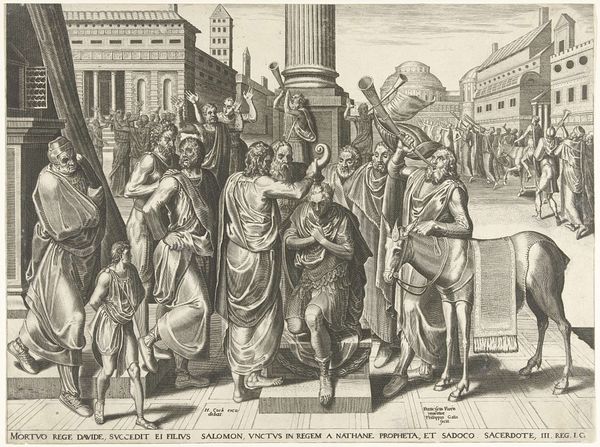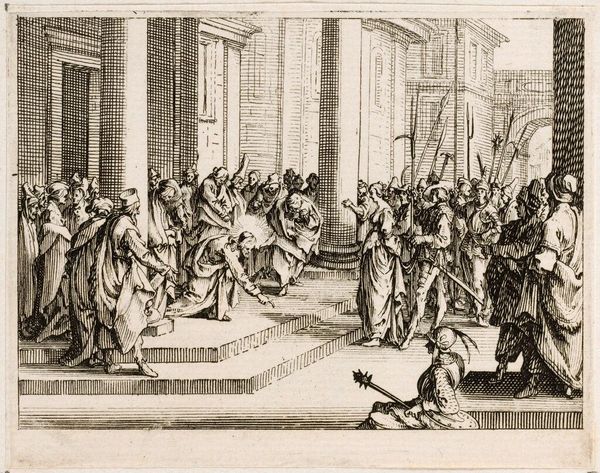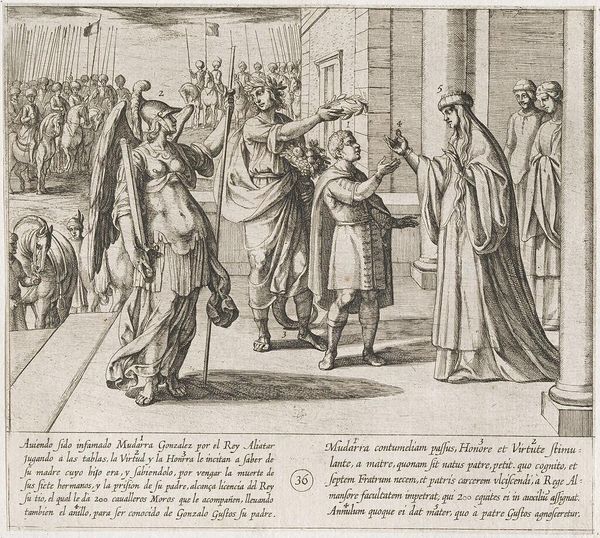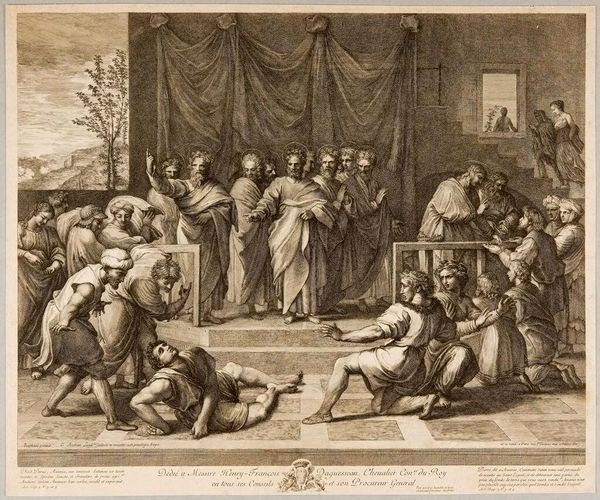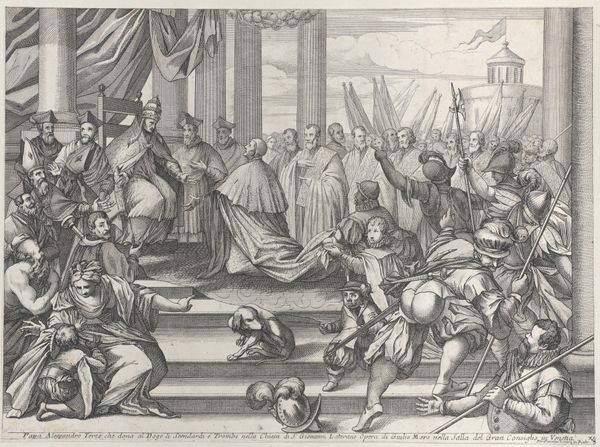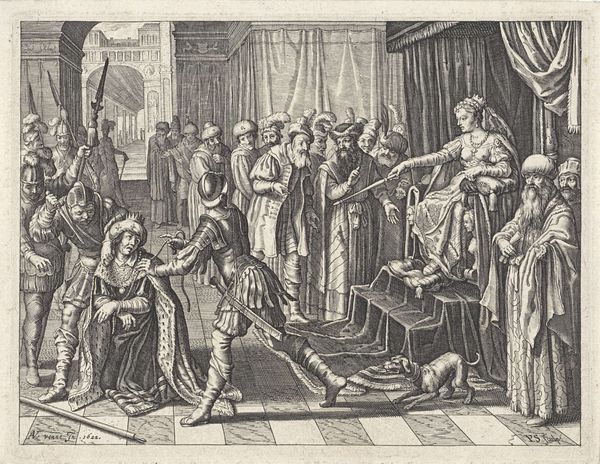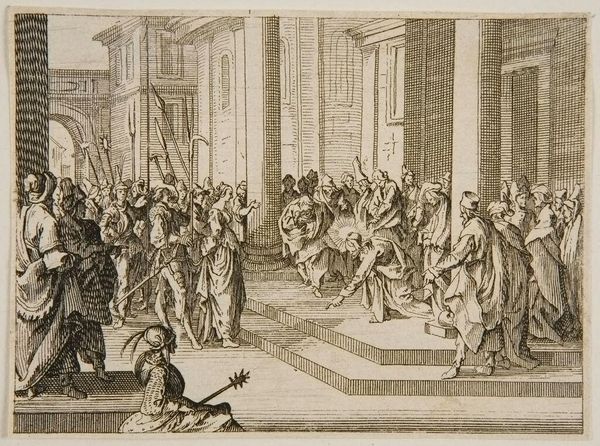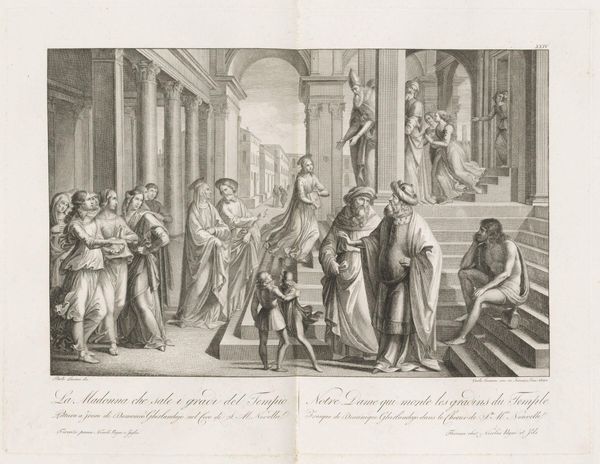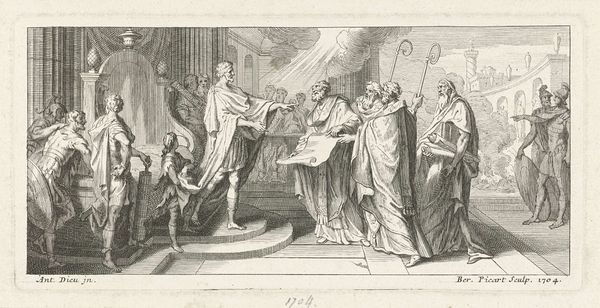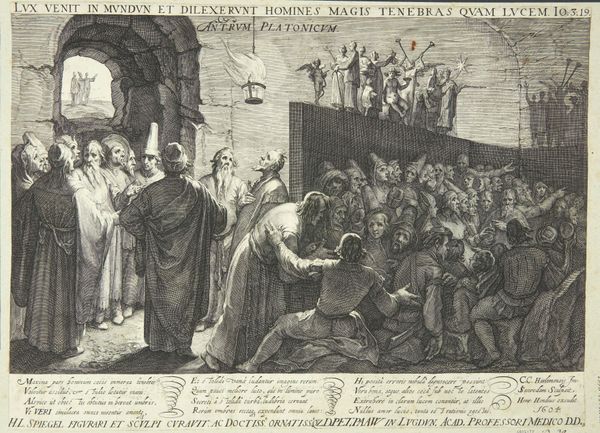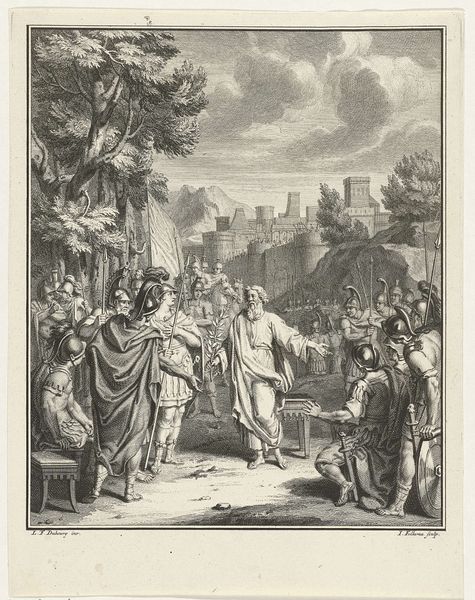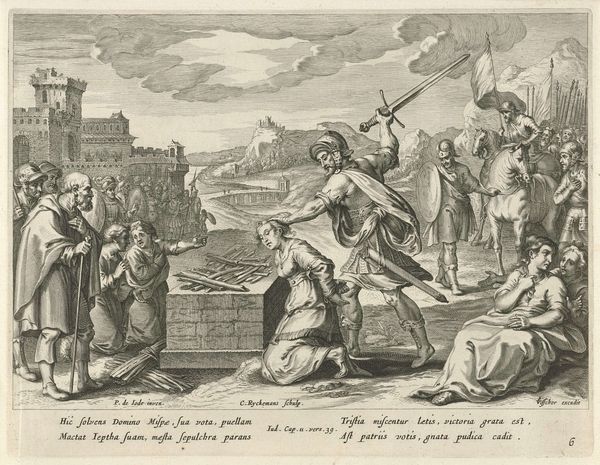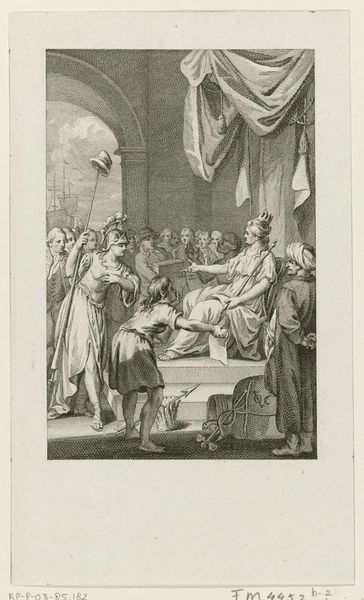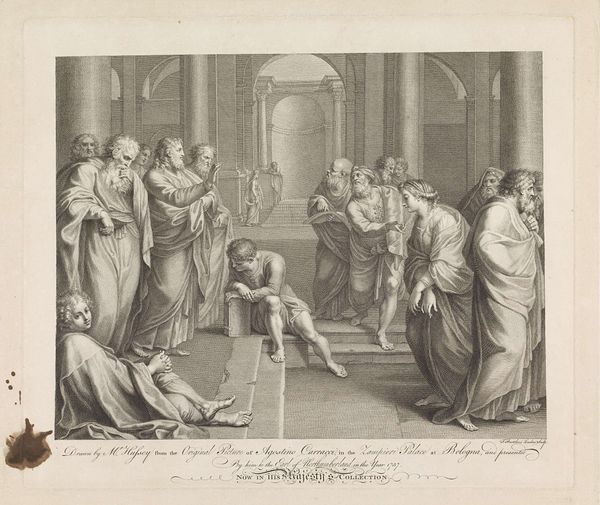
print, etching, engraving
#
narrative-art
#
baroque
# print
#
etching
#
old engraving style
#
caricature
#
figuration
#
cross
#
pen-ink sketch
#
line
#
history-painting
#
engraving
Dimensions: height 151 mm, width 187 mm
Copyright: Rijks Museum: Open Domain
Jacob Folkema created this etching, “Conversion of Constantine the Great,” sometime in the 18th century. The eye is immediately drawn to the contrasting use of light and shadow which models the figures and architectural details of the scene. Observe how the composition is structured around a clear division between the pagan and Christian spheres, with the Roman Emperor Constantine moving from left to right, away from his soldiers and towards the clergy. This directional movement is emphasized by his outstretched arm, guiding us across the image toward the light. The pillars create a framing device that separates the background from the main event, suggesting a symbolic threshold between two worlds. The artist’s lines, though delicate, delineate the different textures—the smoothness of the pillars versus the rougher surfaces of the crowd's attire—contributing to the overall narrative. The architecture and figures are rendered with such detail and perspective that it invites viewers to interpret the artwork through a historical and theological lens.
Comments
No comments
Be the first to comment and join the conversation on the ultimate creative platform.
